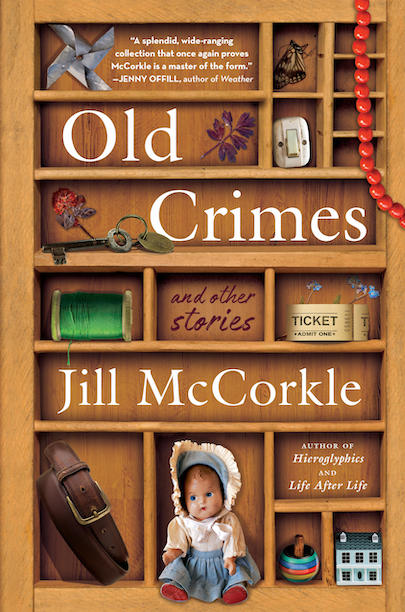Call the Coroner
Mississippi Blood, the last book in the bestselling trilogy by Greg Iles, piles up the bodies on the way to redemption
With Mississippi Blood Greg Iles brings his intricate 2,300-page trilogy to a conclusion. Beginning with Natchez Burning and continuing in The Bone Tree, the epic thrillers follow a bloody trail of buried crimes and present-day vengeance.
 Over the course of the series, Iles’s protagonist, Penn Cage, former prosecutor and now mayor of Natchez, digs up the buried evidence of racist murders and torture during the 1960s. When Penn pokes his stick into this snake pit, he stirs up not only the Double Eagles, an ex-military cadre more violent and efficient than the Ku Klux Klan, but also his own family’s deepest secrets.
Over the course of the series, Iles’s protagonist, Penn Cage, former prosecutor and now mayor of Natchez, digs up the buried evidence of racist murders and torture during the 1960s. When Penn pokes his stick into this snake pit, he stirs up not only the Double Eagles, an ex-military cadre more violent and efficient than the Ku Klux Klan, but also his own family’s deepest secrets.
In Mississippi Blood, Penn is now nearly alone in his quest to find the truth, having lost both his fiancée, Caitlin Masters, and Henry Sexton, a crusading reporter, to the Double Eagles. Penn’s own father, the beloved Dr. Tom Cage, is now on trial for his life, charged with the race-motivated murder of Viola Turner, his former employee. Dr. Cage is stubbornly hiding the truth that could save him—a love affair with the beautiful young African-American nurse. Even his attorney, aging civil-rights icon Quentin Avery, can’t see a way to keep him from heading straight to Parchman prison. But Penn and Quentin are determined to keep Dr. Cage alive long enough to acquit him.
While Penn and his allies have managed to whittle down the Double Eagles and expose their shadowy operations, the most psychopathic of them all, Snake Knox, is still very much alive. Knox is intent on keeping the Double Eagles’ secrets buried, even if he has to kill his own blood brothers to silence them. Pitted against these ruthless killers, Penn makes an uneasy alliance with Viola’s son (and his own half-brother), Lincoln Turner, to save Dr. Cage and take out the Double Eagles once and for all.
The Natchez trilogy is a sprawling plunge into some of the worst crimes of the civil-rights era, pulling the murder and rape and torture of black Americans out of oblivion and into the light. Over the course of three long novels, the author exacts a kind of Django Unchained retribution on his fictional villains while also offering an uneasy redemption for the heroes, black and white, of the series: “Mississippi blood is different. It’s got some river in it. Delta soil, turpentine, asbestos, cotton poison. But there’s strength in it, too. Strength that’s been beat but not broke,” Penn says, quoting a black pulpwood worker.
 Iles grew up in Natchez, and his novels have the feel of thinly veiled reality that must send frissons of “do you think that’s so-and-so” through the Natchez grapevines. Not only are some of the fictional crimes based on real events, but the famous house Edelweiss standing on the Natchez bluffs is real and really owned by Iles. Henry Sexton, the crusading reporter who unearths many of the crimes, is based on Stanley Nelson, the real editor of the Concordia Sentinel. Sexton was obsessed with the murder and burnout of a black music-shop owner, Nelson with the murder and burnout of a black shoe-shop owner. Iles’s own Natchez physician father was the model for Dr. Tom Cage, “Atticus Finch with a stethoscope,” as Iles puts it.
Iles grew up in Natchez, and his novels have the feel of thinly veiled reality that must send frissons of “do you think that’s so-and-so” through the Natchez grapevines. Not only are some of the fictional crimes based on real events, but the famous house Edelweiss standing on the Natchez bluffs is real and really owned by Iles. Henry Sexton, the crusading reporter who unearths many of the crimes, is based on Stanley Nelson, the real editor of the Concordia Sentinel. Sexton was obsessed with the murder and burnout of a black music-shop owner, Nelson with the murder and burnout of a black shoe-shop owner. Iles’s own Natchez physician father was the model for Dr. Tom Cage, “Atticus Finch with a stethoscope,” as Iles puts it.
The publication of Natchez Burning was delayed for five years following a 2011 automobile accident that left Iles gravely injured and led eventually to the loss of his right leg. The experience made him revisit the nearly completed manuscript determined to abandon “formula and fluff” and take his writing to the real depths of the Mississippi experience. “All my books are an inquiry into the nature of evil,” Iles told National Public Radio when Natchez Burning was released. “Why do good people do bad things? Are any human beings completely evil? Do we all have good within us? That’s what I’m interested in.”
Mississippi Blood brings the exploration of that evil, and white middle-class complicity, to a sobering conclusion. “Our country’s messed up, son. Mortally wounded. And I can’t for the life of me see how we’re going to heal it,” Dr. Cage tells Penn. “We’ve got to acknowledge what we did to those people. But I don’t think we ever will. People hate admitting guilt. … Our people fight this so hard because they know the truth in their bones. You know? You don’t get that angry unless you know you’re wrong.”
Sony Pictures Television is developing the Natchez trilogy as a cable TV series.

Lyda Phillips is a veteran journalist who grew up in Memphis and has earned degrees from Northwestern, Columbia, and Vanderbilt universities. The author of two young-adult novels, she worked for United Press International before returning to Nashville.


